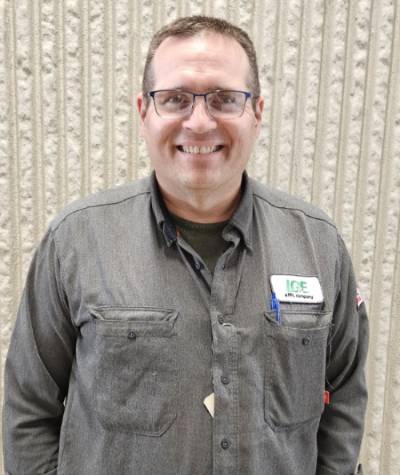Alumnus exemplifies impact of technical education
Robbie Duggins’ journey from a rural Kentucky upbringing to a thriving career in industrial automation is a testament to the transformative power of technical education and mentorship. His story began around his grandfather’s kitchen table, where a simple conversation about electricity sparked a lifelong passion. That spark led him to Elizabethtown Community and Technical College, where he enrolled in the industrial electricity program and found his calling.
Coming from Raccoon County, Robbie had already gained some exposure to electrical work through his high school’s vocational program, dabbling in residential and commercial wiring. But it was at ECTC where he discovered that his true interest lay in industrial systems.
“I learned quickly that I didn’t want to wire houses,” he said. “I wanted to work with machines, automation, and controls.”
The program’s hands-on curriculum – covering fluid power, drafting, computers and more, gave him the skills he needed to succeed. He pursued the degree pathway, taking additional non-technical classes “up on the hill,” and found every course to be directly applicable to the field.
Robbie’s timing couldn’t have been better. He graduated in May 2002 and was hired just seven days later by AGC Automotive, which had recently installed new production lines and was actively seeking technicians.
“It was immediate – right out of school, into a career,” he recalled.
That early entry into the workforce was made possible in part by ECTC’s internship programs, which Robbie described as a major pipeline for talent.
“Nearly half of our workforce came through internships,” he said. “Students get to see the industry firsthand – and sometimes realize it’s not what they want, which is just as valuable.”
Over the years, Robbie has witnessed dramatic changes in industrial technology. He remembers the days of lugging heavy programming devices into the field, plugging them into machines, and loading software from discs. Today, he connects wirelessly with a laptop, accessing intuitive programs and integrated systems.
“The software has become far more user-friendly,” he said. “Now I can walk up to a machine, see what it’s doing, and troubleshoot in real time.”
He’s seen automation evolve from a niche concept to standard practice, with industries like automotive and bourbon production embracing robotics and process control at scale.
Central to Robbie’s success were the instructors who shaped his learning. He speaks with deep appreciation for Gordon Predie, a retired instructor who taught him a troubleshooting method he still uses today.
“Just this morning, I used it to help two newer guys diagnose a transformer alarm,” Robbie said. “That method lives on in me.”
He also credits Arthur “Scooter” Hendricks and Joe Nale for their passion and real-world experience, which brought classroom theory to life.
“It’s one thing to teach theory,” Robbie explained. “It’s another to say, ‘Here’s how this works in the real world.’ That’s what made the difference.”
Robbie’s story is one of generational progress. His grandparents were born during the Great Depression, and while he never experienced poverty himself, he came from modest means. Thanks to ECTC, he built a comfortable life doing work he loves.
“I picked a career field that I’m still fascinated by 25 years later,” he said. “I’ve been very blessed.”
Today, he serves on ECTC’s advisory committee, helping guide the very programs that launched his career.
“I get to influence the direction of the curriculum. That’s full circle.”
From rural roots to robotics, Robbie Duggins exemplifies the impact of technical education, mentorship, and industry-aligned training. His story continues to inspire students who walk through ECTC’s doors, ready to build, wire, troubleshoot, and thrive.

Robbie Duggins, ECTC alumnus
